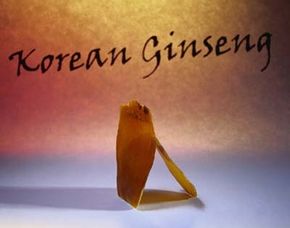Fatigue can rob even the most well-intentioned person of the motivation to get something done. In this article, we'll take a look at some of the things you might be doing which can contribute to fatigue, as well as a few home remedies you can find in your kitchen that might help give you a boost of energy.
Restoring Vitality
Americans are all too familiar with being tired. A poll conducted by the National Sleep Foundation discovered that Americans are sleeping and playing less and spending more time tied to the job than they did five years ago. Sixty-three percent of adults don't get eight hours of sleep a night, the amount that's recommended for good health and safety. And almost one-third get less than seven hours a night during the work week.
Advertisement
Not getting enough sleep is sure to contribute to fatigue, but what people are doing while they're awake is another problem. The same poll showed one-third of Americans are working more than 50 hours a week. People are spending less time taking care of themselves -- sitting down to read a good book, going for a bike ride with the kids, eating a healthy meal. The bottom line: Most people are exhausted. In fact, ten million Americans will visit their doctors this year and ask the same question, "Why am I so tired?"
What Type of Tired Are You?
There are two types of fatigue: emotional and physical. Emotional fatigue is a tiredness of the mind. It happens when stress piles up, such as having to meet multiple deadlines at work or dealing with the unexpected death of a parent. Physical fatigue happens when you spend the day working in the garden and at the end of the day you can't even lift your little toe. Both types of tiredness can cause you to feel lethargic. And they both require rest and relaxation.
How do you know what type of tired you're experiencing? If you wake up tired in the morning but start feeling better as the day goes on , take a look at what's going on in your life emotionally. The key to your fatigue may be in your head. If the morning finds you energized and raring to go, but you start to lose your spark as the afternoon appears, you're probably dealing with a physical problem.
Reasons for emotional fatigue:
- Doing too much. You're a room mother, a Girl Scout leader, and now you've decided to take on the school's annual fund drive. And you wonder why you're wiped out?
- Doing too little. Sounds strange, but boredom makes you tired. Being motivated to accomplish goals adds a spark to your life. The secret is finding the right balance.
- Stressful situations. Major turmoil, such as changing jobs or moving to a new city, can make you feel exhausted.
- Mental maladies. People who are lonely or depressed are prone to tiredness.
Reasons for physical fatigue:
- Skipping needed nutrients. Low-calorie diets, fasting, or just missing meals because of meetings or a too-busy schedule can wipe you out.
- Not sleeping enough. There's no perfect number of hours you should sleep; different people have different sleep needs. But if you wake up feeling exhausted morning after morning, you might need to add a few more sleeping hours in your day.
- Getting no exercise. Exercise is essential to feeling better -- physically and mentally.
- Dodging drinks. Dehydration is an energy zapper. Drinking and eating go hand-in-hand in giving your body the fuel it needs to feel good.
Fatigue as a Symptom of DiseaseFatigue that is brought on by an unexpected loss of sleep, like being a new parent, or a stressful situation, like being a new parent, is usually easily remedied simply by taking good care of yourself. But ongoing fatigue can be the signal that something more serious is going on in your body. It can often be a symptom of:
- anemia
- arthritis
- a slower-than-usual thyroid (hypothyroidism)
- an underlying sleep disorder
- cancer
- chronic fatigue syndrome
- diabetes
- heart disease
If you have persistent fatigue, it's important to see your doctor. However, for less severe symptoms, there are a few home remedies in the next section that might help you deal with your fatigue.For more information about fatigue related issues and how to combat them, try the following links:
- To see all of our home remedies and the conditions they treat, go to our main Home Remedies page.
- Learn more about anxiety and how it can contribute to fatigue in Home Remedies for Anxiety.
- Not getting enough sleep at night will put a damper on your motivation for sure. Learn more about how to get enough sleep with these Home Remedies for Insomnia.
- Stress affects us in many ways. Read about how to deal with the pressure in Home Remedies for Stress.
- Knowing exactly what causes stress can help you stay above water. Learn more about this malady in How Stress Works.
This information is solely for informational purposes. IT IS NOT INTENDED TO PROVIDE MEDICAL ADVICE. Neither the Editors of Consumer Guide (R), Publications International, Ltd., the author nor publisher take responsibility for any possible consequences from any treatment, procedure, exercise, dietary modification, action or application of medication which results from reading or following the information contained in this information. The publication of this information does not constitute the practice of medicine, and this information does not replace the advice of your physician or other health care provider. Before undertaking any course of treatment, the reader must seek the advice of their physician or other health care provider.
Advertisement

